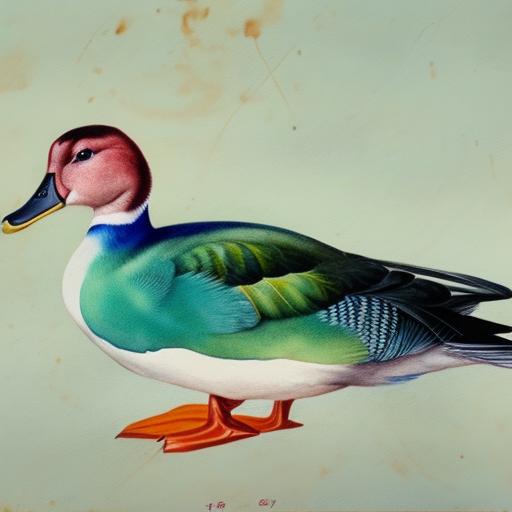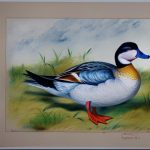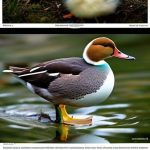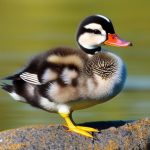Ducks are a popular choice for farming due to their versatility and usefulness. There are many different breeds of ducks, each with its own unique characteristics and traits. From egg production to meat production, ducks can serve a variety of purposes on the farm. Understanding the different breeds of ducks and their specific qualities can help farmers make informed decisions about which breed is best suited for their needs.
Key Takeaways
- There are many different duck breeds, each with unique characteristics and purposes.
- Popular duck breeds for farming include the Pekin, Khaki Campbell, and Indian Runner.
- Rare and exotic duck breeds such as the Silver Appleyard and Saxony can be a unique addition to a farm.
- Duck breeds known for egg production include the White Crested, Welsh Harlequin, and Golden 300 Hybrid.
- For meat production, the Muscovy and Pekin duck breeds are popular choices.
- When choosing a duck breed, consider factors such as space, climate, and intended use.
- Caring for different duck breeds involves providing proper housing, nutrition, and healthcare tailored to their specific needs.
Popular Duck Breeds for Farming
One of the most popular duck breeds for farming is the Pekin duck. Known for its large size and white feathers, the Pekin duck is a favorite for meat production. They are fast-growing and have a high feed conversion ratio, making them an efficient choice for farmers looking to raise ducks for meat. Another popular breed is the Khaki Campbell, which is prized for its high egg production. Khaki Campbells are known to lay upwards of 300 eggs per year, making them an excellent choice for farmers looking to produce duck eggs for consumption or sale. The Indian Runner duck is also a popular choice for farming due to its upright stance and prolific egg-laying abilities. These ducks are known for their unique appearance and are often used for both egg and meat production.
Rare and Exotic Duck Breeds
While Pekin, Khaki Campbell, and Indian Runner ducks are popular choices for farming, there are also rare and exotic duck breeds that are gaining attention in the farming community. The Silver Appleyard duck, for example, is a rare breed known for its striking plumage and excellent meat production qualities. The Silver Appleyard is a dual-purpose breed, meaning it can be raised for both eggs and meat. Another exotic breed is the Saxony duck, which is prized for its calm temperament and excellent meat production. The Saxony duck is known for its beautiful plumage and is a popular choice for farmers looking to raise ducks for both meat and exhibition purposes. The Cayuga duck is another rare breed that is gaining popularity for its iridescent green-black feathers and excellent egg-laying abilities. These rare and exotic duck breeds offer farmers the opportunity to diversify their flocks and explore new possibilities in duck farming.
Duck Breeds for Egg Production
When it comes to egg production, certain duck breeds stand out for their prolific laying abilities. The Khaki Campbell is one of the top choices for egg production, as these ducks are known to lay an impressive number of eggs each year. Their high egg production makes them a valuable asset to any farm looking to produce duck eggs for consumption or sale. Another breed known for its egg-laying abilities is the Welsh Harlequin. These ducks are prized for their calm temperament and excellent egg production, making them a popular choice for farmers looking to establish a reliable source of duck eggs. The Ancona duck is also known for its high egg production, with some individuals laying up to 240 eggs per year. These breeds are excellent choices for farmers looking to focus on egg production and establish a consistent supply of duck eggs.
Duck Breeds for Meat Production
For farmers looking to raise ducks specifically for meat production, there are several breeds that stand out for their size and meat quality. The Pekin duck is one of the most popular choices for meat production due to its large size and fast growth rate. Pekin ducks are known for their tender, flavorful meat, making them a favorite among consumers. The Muscovy duck is another top choice for meat production, as it produces lean, succulent meat that is prized by chefs and home cooks alike. Muscovy ducks are also known for their efficient feed conversion, making them a cost-effective option for farmers looking to raise ducks for meat. The Aylesbury duck is another breed that is prized for its meat quality, with tender, juicy flesh that is highly sought after in the culinary world. These breeds are excellent choices for farmers looking to establish a profitable meat production operation.
Choosing the Right Duck Breed for Your Needs
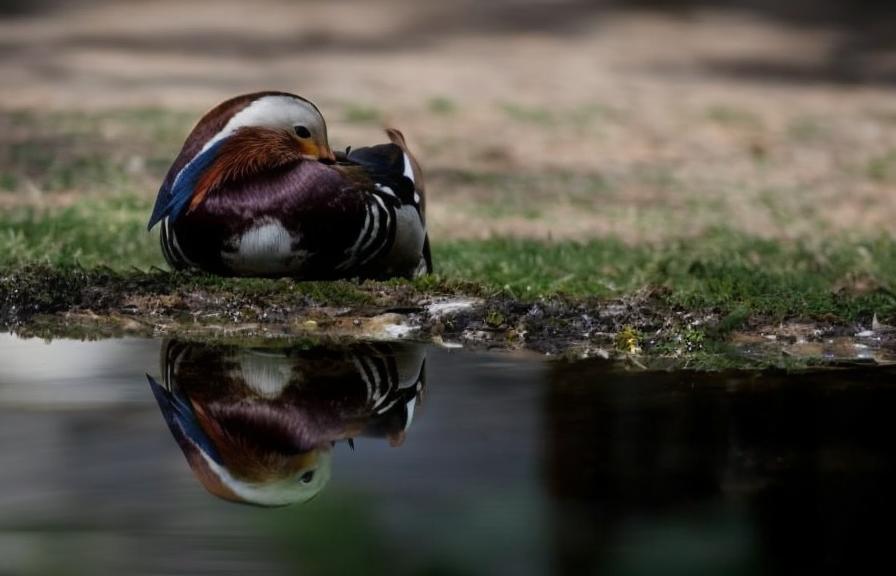
When it comes to choosing the right duck breed for your farm, it’s important to consider your specific needs and goals. If you’re looking to establish a reliable source of duck eggs, then breeds like the Khaki Campbell, Welsh Harlequin, and Ancona may be the best choice for you. On the other hand, if you’re focused on meat production, then breeds like the Pekin, Muscovy, and Aylesbury may be more suitable for your needs. It’s also important to consider factors such as climate, space requirements, and temperament when choosing a duck breed. Some breeds may be better suited to cold climates, while others may thrive in warmer environments. Additionally, some breeds may have specific space requirements or housing needs that should be taken into consideration. Finally, temperament is an important factor to consider, especially if you have other animals on your farm. Some breeds may be more docile and easy to handle, while others may be more independent or flighty.
Caring for Different Duck Breeds
Once you’ve chosen the right duck breed for your farm, it’s important to understand how to properly care for them. Each breed may have specific dietary needs, housing requirements, and health considerations that should be taken into account. For example, Pekin ducks may require a diet high in protein to support their rapid growth, while Khaki Campbells may benefit from a diet that supports their high egg production. Additionally, providing adequate housing and protection from predators is essential for all duck breeds. Ensuring that ducks have access to clean water for drinking and bathing is also crucial for their health and well-being. Regular health checks and vaccinations may be necessary to prevent diseases and ensure that your ducks remain healthy and productive. By understanding the specific needs of different duck breeds and providing them with proper care and attention, farmers can ensure the success of their duck farming operations.
If you’re interested in learning more about duck breeds, you might also want to check out an article on PoultryWizard.com that discusses the importance of the size of a coop for chickens. The article “How Big Does a Coop Need to Be for a Chicken?” provides valuable insights into creating a comfortable and spacious living environment for your poultry. You can read the full article here.
FAQs
What are the different duck breeds?
There are many different duck breeds, including the Pekin, Mallard, Rouen, Khaki Campbell, Indian Runner, and Muscovy, among others.
What are the characteristics of different duck breeds?
Different duck breeds have varying characteristics such as size, color, and behavior. For example, Pekin ducks are large and white, while Indian Runner ducks are known for their upright posture and ability to run rather than waddle.
What are the purposes of different duck breeds?
Duck breeds can be raised for various purposes, including meat production, egg production, ornamental purposes, and as pets. For example, Pekin ducks are commonly raised for meat, while Khaki Campbell ducks are known for their high egg production.
What are the best duck breeds for beginners?
Some duck breeds are more suitable for beginners due to their hardiness and ease of care. Popular choices for beginners include Pekin, Khaki Campbell, and Indian Runner ducks.
How do I choose the right duck breed for my needs?
When choosing a duck breed, consider factors such as your purpose for raising ducks (meat, eggs, pets), available space, climate, and your level of experience with duck care. Researching the specific characteristics and requirements of different duck breeds can help you make an informed decision.
Meet Walter, the feathered-friend fanatic of Florida! Nestled in the sunshine state, Walter struts through life with his feathered companions, clucking his way to happiness. With a coop that’s fancier than a five-star hotel, he’s the Don Juan of the chicken world. When he’s not teaching his hens to do the cha-cha, you’ll find him in a heated debate with his prized rooster, Sir Clucks-a-Lot. Walter’s poultry passion is no yolk; he’s the sunny-side-up guy you never knew you needed in your flock of friends!

